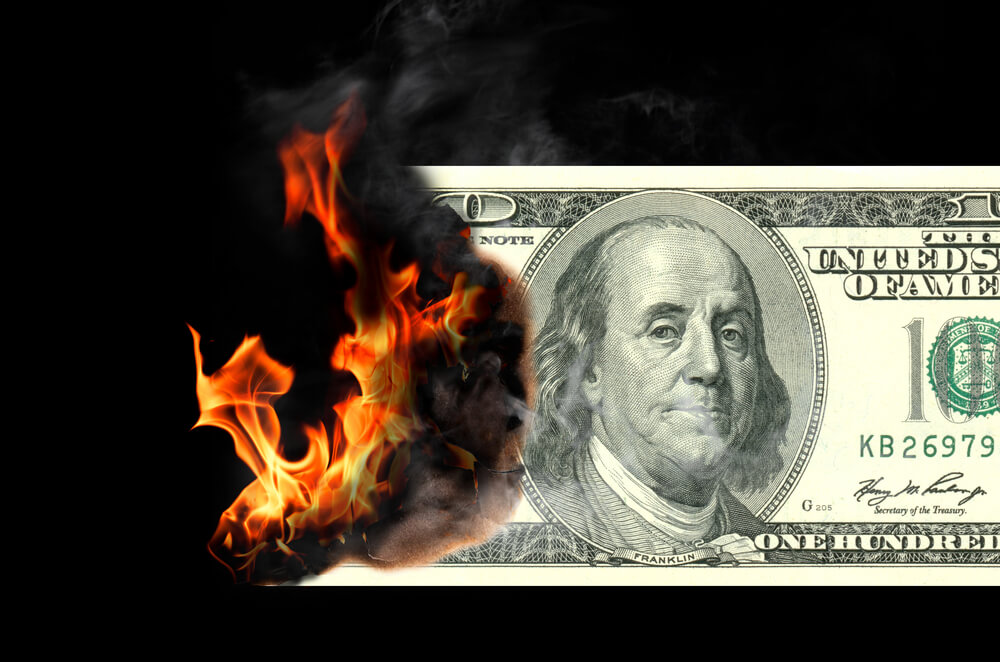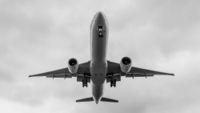Avoid Fuel Surcharges on Award Travel (2021)
Home, Using Your Points for Free Travel
Using your frequent flyer miles for international award tickets can seem like a great deal, until you get to the final steps of booking your award ticket and notice that you are still required to spend large amounts of money. In extreme cases, the fees and surcharges on award tickets can be nearly as much as the regular ticket price—giving you very little value for your points.
The main problem are so-called “Fuel Surcharges” (or “Carrier-imposed surcharges”) that are added to award tickets. For a trip between the US and Europe, these surcharges can be as high as $400-700 in economy and over $1,000 in business class.
You can avoid these fees if you fly on an airline that DOESN’T charge fuel surcharges on their award tickets. If you are flying an airline that DOES charge fuel surcharges, you can sometimes still avoid them by booking through a handful of frequent flyer programs that won’t pass these extra charges along to you.
There are usually no fuel charges on award tickets within North and South America, but it is worthwhile trying to avoid them when you are traveling to and within Europe, Asia, and Africa.
Jump to
Jump to:
- 1 An example
- 2 Surcharges are primarily a problem for flights to Europe
- 3 Option 1: Fly on airlines that don’t add fuel surcharges
- 4 Option 2: Use frequent flyer programs that don’t pass fuel surcharges on to you
- 5 Summary of low fuel surcharge options to Europe
- 6 Paying fuel surcharges is sometimes worth it
An example
Before we show you how to avoid fuel surcharges, it is worthwhile to show you just how outrageous they can be. One of the worst offenders is British Airways, which is unfortunate, because they offer many convenient flights between the US and Europe. In this example, British Airways charges $404 in fees for a round trip from New York to London. Economy class award tickets from the West Coast can have fees over $700.
Compare that with a regular ticket from New York, which costs as little as $457 on the same dates.
In this example, spending 26,000 miles for the award ticket only saves you about $50. And if you paid the extra $50, you wouldn’t just avoid spending the 26,000 miles, you’d get a slew of new miles for your flight.
If you want a business class award ticket, the already high fees get much higher:
But so do the prices for a cash ticket, especially if you aren’t buying during a fare sale. Even with the hefty surcharges, using miles can still save you a significant amount of money compared to the sky-high normal asking price for a business class ticket.
But business class tickets can sometimes be significantly cheaper, bringing them much closer to the cost of just the fees on a typical British Airways award ticket:
Surcharges are primarily a problem for flights to Europe
The fees that you pay on an award ticket vary widely based on where you are flying.
- You don’t need to worry about fuel surcharges in North and South America. Airlines don’t add fuel surcharges to award tickets within or between these regions. You’ll still pay some fees, but they will be very low. Just use whichever frequent flyer program requires the fewest number of miles.
- Fuel surcharges are a big problem for flights to and from Europe. Most of the European airlines add very high surcharges to these routes and there are often expensive “airport fees” added on as well. Unless you can avoid these surcharges, award tickets to Europe are rarely a good deal. However, fees for flights within Europe can be quite reasonable—even British Airways only charges a small fee for intra-European flights.
- Fuel surcharges are still significant for flights to and from Asia and Africa. While not nearly as outrageous as the fees associated with award tickets to Europe, award tickets to Asia and Africa can still require several hundred dollars of fees.
- A few countries restrict fuel surcharges on award tickets, either prohibiting them outright or enforcing a very low cap. Among other countries, this is true for Australia, New Zealand, Brazil, Philippines, and domestic flights within China. These restrictions only apply for flights which depart from the countries.
Option 1: Fly on airlines that don’t add fuel surcharges
The good news is that some airlines don’t add fuel surcharges to their award tickets or only add inexpensive surcharges (below $100).
- In general, if the airline you are flying doesn’t charge surcharges on its own flights, you won’t pay them regardless of which frequent flyer program you use to book your award tickets. For example, Avianca (a South American airline) doesn’t add fuel surcharges to its award tickets. No matter which Star Alliance program you use to book those tickets, you won’t pay a surcharge—even if you book with Lufthansa points.
- There are a few exceptions to this rule—most notably that British Airways will charge fuel surcharges on American Airlines flights to Europe, even though American doesn’t charge them themselves.
- Most North and South American Airlines don’t add fuel surcharges to any of their flights. Because award tickets in North and South America don’t usually have fuel surcharges, the airlines that are based in these regions generally don’t add fuel surcharges to ANY of their flights. So, if you are flying one of the US Airlines, you generally won’t need to pay fuel surcharges on your award tickets even if you are flying to a destination (like Europe) where fuel surcharges are normally added.
Here is an incomplete list of airlines that add low or no fuel surcharges to their award tickets, regardless of region:
| European Airlines | North American Airlines | South American Airlines | Others |
|---|---|---|---|
| Aer Lingus
LOT Polish (low surcharges) |
Air Canada
Alaska Airlines American Airlines (except when you book flights to Europe with British Airways or Cathay Pacific points) Delta (except on one-way flights FROM Europe) Hawaiian United (except for flights booked with ANA miles) |
Aerolineas Argentinas (except to/from Europe)
Avianca COPA LATAM TACA |
Cathay Pacific
JAL (mostly) Malaysia (except KL to London) Singapore Airlines Virgin Australia |
Option 2: Use frequent flyer programs that don’t pass fuel surcharges on to you
Some frequent flyer programs won't pass through fuel surcharges to their members, regardless of which airline you are flying.
Even if an airline normally adds fuel surcharges to their award tickets, you can avoid them by using the right frequent flyer miles to book your ticket.
For example, Lufthansa normally adds hefty fuel surcharges for its flights to Europe. But if you book those flights with United miles, you won’t need to pay those fees.
| Star Alliance |
United.
Air Canada (Aeroplan).
Avianca Life Miles.
| |||||||||||||||
| Oneworld |
American Airlines.
| |||||||||||||||
| SkyTeam |
Delta.
| |||||||||||||||
| Other |
Alaska Airlines.
Hawaiian Airlines.
|
Summary of low fuel surcharge options to Europe
In summary, there are three ways to avoid paying high fuel surcharges to Europe (and other destinations).
- Stick with airlines that don’t charge fuel surcharges. Fly on United, American, or Delta instead of their European partners. If you are flying American, avoid using British Airways miles. Rather than using your British Airways points to fly British Airways or American, use them to fly Aer Lingus.
- If you need to fly an airline that adds fuel surcharges, use a frequent flyer program that doesn’t pass them on to you. Air Canada is usually the best option for Star Alliance flights. You can use American Airlines miles to avoid fuel surcharges on Finnair. You can use Delta miles to avoid fuel surcharges on Delta and Air France (assuming you are booking a round trip or a one-way to Europe). Using Alaska miles lets you avoid fuel surcharges for flights on Condor.
- If necessary, fly with airlines that add somewhat lower surcharges. Some examples are Aeroflot, Air Europe, Finnair, Icelandair, and Turkish Airlines. The European SkyTeam airlines (such as Air France, Alitalia, and KLM) charge lower fuel surcharges than Star Alliance (Lufthansa, SAS) brethren or British Airways. Iberia’s fuel surcharges are significantly lower than British Airways.
You can also take advantage of the occasional flight to Europe with a non-European, non-US carrier that doesn’t add fuel surcharges (like Aeromexico).
Book two separate one-ways to lower your fees and surcharges. Fuel surcharges between Europe and the US are cheaper than from the US to Europe. If you use a round trip award ticket from the US, you’ll sometimes pay the higher fuel surcharge in both directions. If you book as separate award tickets, you’ll pay a lower charge on the way back.
Paying fuel surcharges is sometimes worth it
It can sometimes be worth using a program that has higher fees but requires fewer miles.
For example, you can avoid fuel surcharges when you fly to Europe using United Miles, but you will need to spend 115,000 miles for a business class ticket. ANA only charges 88,000 miles for the same ticket. At a valuation of 1.5 cents per point, using an extra 27,000 miles has a cost of around $400. If the fuel surcharges are under $400, you are better off saving points and paying the extra fees. 2. Choose the Least Expensive Frequent Flyer Program for Your Ticket.








